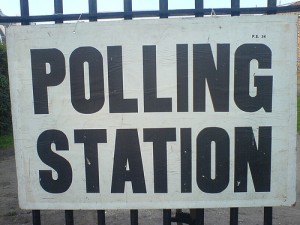This Week In Education Polling
The start of the school year in Florida and many parts of the country has meant a glut of new education polls asking about shared education standards, standardized testing, teacher evaluations and policies adopted by Florida and other states.
The most noteworthy poll is the annual Phi Delta Kappa/Gallup poll of education issues. This is the 45th year of the poll. The poll sampled 1,001 adults and had a margin of error of 3.8 percent.
The PDK/Gallup poll found broad belief that two major education reforms will have little effect on U.S. schools.
Just 22 percent of respondents said the increased use of standardized testing to measure school performance has helped. 36 percent of those who responded said the testing has hurt schools, while 41 percent said it made no difference.
Florida is one of 45 states which has fully adopted new education standards known as Common Core, but the PDK/Gallup poll shows only 38 percent of those responding had heard of Common Core. Even for those with children in public schools, less than half were familiar with Common Core.
Four in ten surveyed said they thought the new standards would make U.S. schools more competitive globally, while two in ten thought Common Core would make U.S. schools less competitive.
The survey also found that 58 percent of those surveyed opposed evaluating teachers based on student test scores — and 63 percent oppose making the results of those evaluations public.
The PDK/Gallup results conflict with a Joyce Foundation survey of parents with children in K-12 schools conducted by the Associated Press-NORC Center for Public Affairs Research. The Joyce Foundation poll sampled 1,025 adults and had a margin of error of 4.1 percent.
In that survey, 61 percent of respondents said their children take about the right amount of standardized tests and three out of four parents surveyed said it was “extremely” or “very important” that their children were regularly assessed to make sure they were meeting grade level expectations.
The Joyce Foundation survey also found a majority of parents — 53 percent — surveyed thought test scores should be used “a great deal” or “quite a bit” when evaluating teachers. One in five said test scores should be used “only a little” or “not at all.”
The Joyce Foundation survey found slightly less than half of parents thought Common Core standards would improve the quality of education.
And finally journal Education Next found that while support is strong for Common Core, opposition is building more quickly.
Nearly two-thirds of those surveyed said they support Common Core, according to Education Next, but that opposition to the standards had doubled — 13 percent, up from 7 percent — since the previous year’s poll.
The Education Next poll sampled 1,138 adults and had a margin of error of “about 3 percent.”


